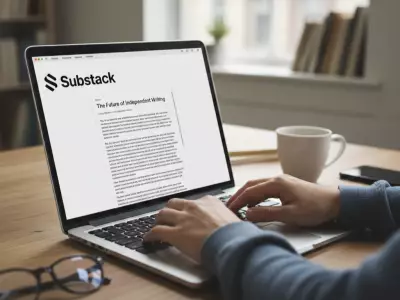Protecting Your Address: What to Do if Someone Is Using It Without Permission
Table of Contents
- Published: May 30, 2025
- Last Updated: May 30, 2025
Most people aren’t overly protective of their home address. They don’t give it to anyone who asks, but they also don’t find it too suspicious when an e-commerce website or application asks for the information.
However, your home address is a crucial part of your financial identity. It is common for an online transaction to fail because the consumer inputs the wrong zip code or street number. Some security measures even check whether the user’s billing address matches the bank’s records.

If someone is using your home address without permission, there is a strong chance they are using your other information. Recognizing suspicious activity around your address can allow you to stop identity fraud before the criminal causes lasting damage.
How To Recognize if Someone Is Using Your Address
There are various signs that a fraudster is using your address. These red flags are sometimes hard to identify if you are not actively watching out for them.
Unfamiliar Mail or Packages
It isn’t rare to get someone else’s mail at your home. People assume that it was a mail carrier’s mistake or holdover mail from a previous resident. But it could be a warning that a criminal is using your address.
You should pay attention to all mail that is not addressed to someone in the house. Significant examples are bills, credit card statements, newsletters, and subscription products. These things arrive at your home because the fraudster is using your address to sign up for various offerings.
Credit or Loan Applications in Your Name
If someone is using your address, applications for new credit lines may appear in the mail at your house. The fraudster might open an account with a bank using your information; the bank then sends additional offers for higher credit limits or special cards to your home.
Alerts or Notifications of Fraudulent Activity
Financial institutions may send you an alert regarding suspicious activity on one of your active credit lines. These warnings can be triggered by out-of-place spending or if the balance drops unusually low.
You will also receive an alert from credit bureaus if you have a credit lock posted to your identity. These locks require that the bureau confirms your identity before handing information to any creditors, preventing fraudsters from opening accounts in your name.
Immediate Actions to Take
If you suspect that your address or other identity information is being used without your permission, you must act immediately. Reporting your suspicions and looking for further evidence of identity theft is not punishable.
Place a Fraud Alert or Freeze on Your Credit
There are two ways to control credit requests to the three major bureaus directly. A credit freeze or lock is the best way to protect your identity, but it has different strengths and weaknesses depending on your needs.
A credit lock, or credit alert, requires the major credit bureaus (Equifax, Experian, and TransUnion) to leave a memo on your profile. This note requires them to contact you for permission before providing your credit report to banks, landlords, or other parties.
The weakness of a credit lock is that it is not federally protected. The credit bureaus offer this measure, but the government doesn’t require it. This also means that each bureau is not responsible for setting up an alert with the other two, meaning you must contact each one individually.
A freeze is a more extreme protection that completely shuts down access to your credit report, including to yourself. You must “thaw” the freeze before any institution can see your history, which can slow down processes like bank applications or professional background checks.
You only need to initiate a freeze with one of the bureaus. They are required to extend the request to the other two.
Check Your Credit Report and Financial Accounts
Regular reviews of your credit report ensure that you see any unauthorized credit lines opened under your name. All three credit bureaus provide a free annual credit report upon request, which allows anyone to access a full report every four months.
Also, go through your financial statements to look for unauthorized purchases. Identity thieves are good at covering their tracks and tend not to make too many subsequent purchases. You may have to go back months to find evidence of fraud.
It is recommended that you review your spending history weekly or biweekly. Ensure that each check covers the period leading back to your most recent check.
Contact the Sender or Delivery Service
It is a federal crime to open somebody else’s mail. However, you can check the sender’s identity for the unidentified mail and contact them on your terms. Question the company about your relationship with their services.
The business or creditor will want to know if someone is falsely using your identity. They will also face losses if you claim fraud due to chargeback fees, lost reputation, and “bad debt.”
Report the Incident to the Postal Service
Visit the local postal service office about the unexplained mail coming to your address. They will be able to tell you whether a past resident hasn’t updated their address. If the mail is being sent correctly, then it indicates that the situation is more than a simple mistake.
Legal Steps to Take if Someone Is Using Your Address
Identity theft is a serious crime and can ruin lives if not addressed. Law enforcement or other legal action may be necessary.
Notify Tax Authorities
You should also contact the Internal Revenue Service (IRS) and confirm that nobody has filed their tax returns using your address. An additional person filing from your residence may cause suspicion and future headaches.
If they used your identity to file a tax return, not just your address, then you must report tax-related identity theft to the IRS. You will need to complete Form 14039 and submit it to your local tax offices.
Take Action Against Identity Theft
Victims should report identity theft of any kind, including misuse of their address, to the Federal Trade Commission. Online reporting is available at Identitytheft.gov or by calling 1-877-438-4338. An agent will provide guidance on further steps to take.
File a Police Report
Call or visit your local law enforcement agency and file a police report. Creditors will be significantly more willing to help if they know you’ve already started the process for them.
It is recommended that you file with the Federal Trade Commission (FTC) before visiting a police station. In some states, an FTC form is required before an officer will create a police report.
The police officers can help you know your next steps, but you can help the process by preparing things beforehand. Carefully document and store any proof of fraud, including illegal transactions from your accounts and the resulting mail arriving at your address.
How To Protect Your Address from Future Fraudulent Use
With a few easy habits, you can greatly minimize the risk of someone using your address for fraud. Preventing fraud is much less of a headache than dealing with its aftermath.
Secure Your Mail and Packages
A criminal can uncover your address and steal your mail to find more sensitive information. Creditor communications and tax forms can contain details that can lead to severe identity theft cases, so it is recommended that you keep your mail and packages secure.

Installing a locking mailbox will prevent criminals from getting an easy hit. Just one extra layer of protection will make the thief more likely to go for your neighbor’s less secure mailbox.
A similar idea is to put a porch camera outside your home. Make the device impossible to easily remove and visible enough that would-be thieves know they are being watched.
You can also enroll for services like USPS Informed Delivery, which shows you a preview of your incoming mail and packages. This service allows recipients to know what mail is missing from their mailbox.
Be Cautious with Sharing Your Address
Many organizations want your mailing address to send subscriptions and coupon deals. However, very few of them need that information to provide their service. Limit who you share your address with because you never know when an online site or organization will experience a data breach that endangers your information.
Additionally, try to shred sensitive documents instead of throwing them into the trash fully intact. Protecting other sensitive information like your SSN and birthday will make learning your address less effective. Most identity fraud requires a large amount of information on the victim to work effectively.
Monitor Your Credit Regularly
Most people don’t want to check their past transactions daily, especially if they have multiple bank accounts or credit lines. In these cases, enrolling in a credit monitoring service allows you to continue your daily life while staying on top of your financial standing.
Monitoring services provide automatic alerts when anyone requests your credit score. However, they also send notifications when any of your information pops up on the web. So, you will always know if someone is using your identity for any purpose, not just for financial fraud.














